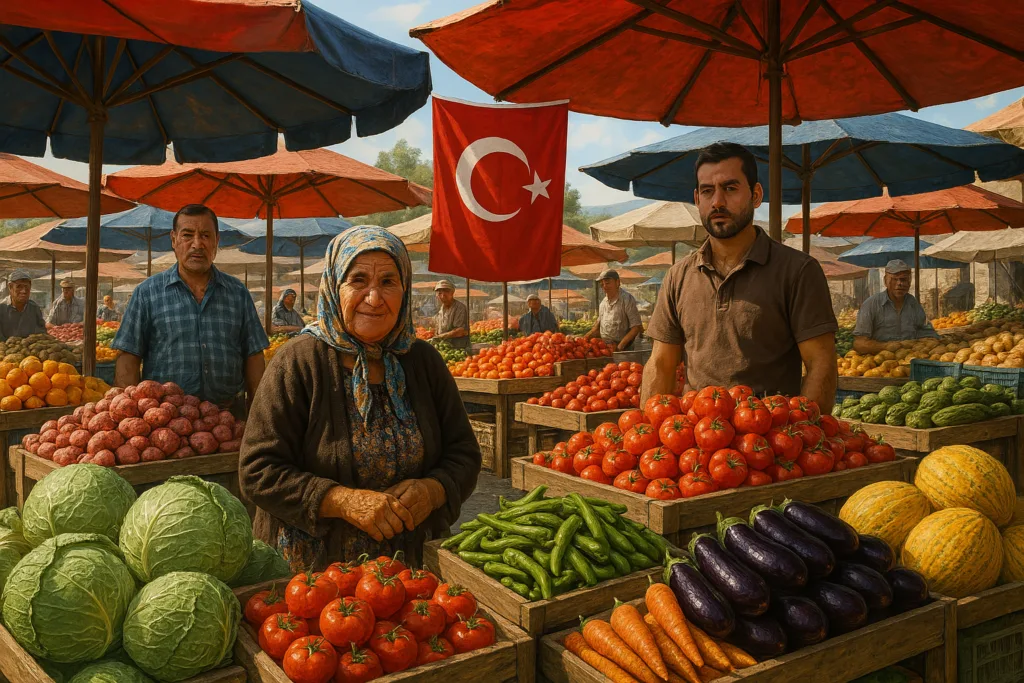In 2025, the Turkish agricultural sector once again finds itself at the crossroads of opportunity and uncertainty. For importers in Europe and the MENA region, it’s worth taking an early and realistic look at the situation—especially when it comes to fruits, oils, and plant-based specialties. At NUANCE AGRO, we are closely connected to the market and share our perspective from the B2B export viewpoint.
Harvests & Weather Conditions: 2025 Begins with Uncertainty
Turkey’s climatic conditions have been showing increasing fluctuations in recent years. After a dry autumn and mild winter in the western part of the country, some fruit-growing regions may experience delayed blossoming—particularly for stone fruits like apricots or peaches. At the same time, yields in the Mediterranean region (e.g., Adana, Mersin) are expected to be more stable.
For products like olive oil, pistachios, or raisins, the developments over the next 6–8 weeks will be critical. In these segments, prices and availability are highly sensitive to local weather and water resources. Those who need long-term planning security should look beyond spot prices and instead focus on partnerships with a stable network.
Cost Trends & Currency: Volatility Persists
In 2025, the exchange rate of the Turkish Lira remains a key uncertainty. Producers are calculating more cautiously, with many avoiding long-term price commitments. At the same time, packaging and local logistics costs are rising—despite partially falling freight costs toward Europe.
For importers, this means: a flexible pricing strategy (e.g., price ranges, options for EXW/DAP) is more important than ever. Suppliers who communicate clearly and transparently are the ones who build trust.
Certification Pressure Increases – Especially for Fresh Produce
Many markets today demand complete documentation: Halal, phytosanitary certificates, TRACES, EORI – the requirements for fresh goods are becoming increasingly strict. Preparation is key. Turkey offers solid conditions—but only with well-organized export partners.
How NUANCE AGRO Responds
We continuously monitor harvest reports, supplier feedback, and freight developments. For our clients, we prepare timely seasonal updates—including price indicators, product availability, and certification status.
In 2025, we are intentionally partnering with suppliers who not only provide quality goods—but who also understand processes. That’s our contribution to a reliable agricultural trade between Turkey and Europe.
Questions or need up-to-date information?
Contact us at info@nuanceagro.com
We’re happy to share our insights for your product group or target region.
